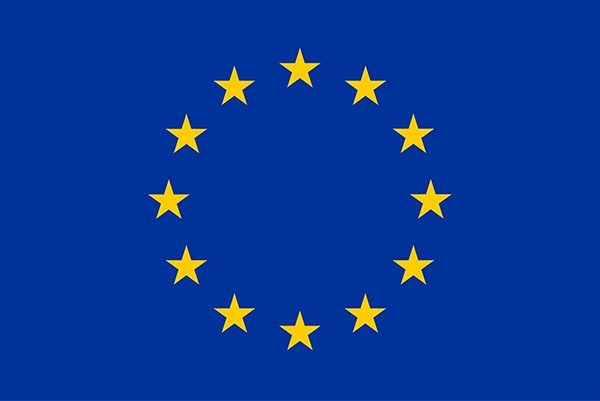Belgium-Japan Joint Workshop: Bridging STS Research on Citizen Science between Belgium and Japan
The bilateral Japanese-Belgian research project ‘After and Beyond Fukushima: Probing the Role and Potential of Citizen Science in Nuclear Science and Technology Governance in Japan and Belgium‘ (2017-19) was led by social scientists based at the Belgian Nuclear Research Centre (SCK-CEN), KU Leuven, and the universities of Osaka and SOKENDAI; and jointly funded by the Research Fund – Flanders (FWO) and the Japanese Society for the Promotion of Science (JSPS). It adopted a data-led sociological approach with the aims of garnering insight into the emergence and development of post-Fukushima citizen science, developing theoretically- and empirically-informed concepts of citizen science, improving research design and establishing promising future research venues. Following up the research project, this workshop aims to discuss different meanings of ‘citizen science’ in Japan/Asia and Belgium/Europe and understand a wide range of current citizen science(-like) activities by inviting other citizen science researchers and practitioners and expanding the scope from radiation measurement to wider scientific, environmental and social issues.
Date: 13:00-17:00, Wednesday 29 January 2020
Venue: Citizen Science Initiative Japan (CSIJ), Tokyo
- ‘9 Years after Fukushima, has Citizen Science come of age?’
Michiel Van Oudheusden (University of Cambridge)
There are three elements in the ‘coming of age’ of citizen science (CS) – radiological protection, citizen science and responsible research and innovation (RRI). This kind of ‘citizen sciencization’ brings a way to think about entanglement and assemblage, expresses motion and fluidity, and attends us to mutual ‘uptake’.
- ‘CitizenScience.Asia: The first steps of building a Citizen Science community in Asia’
Emu-Felicitas Ostermann-Myashita (Tokyo University of Agriculture and Technology / CitizenScience.Asia Japan Ambassador and Leadership Team Member)
After joining a German citizen science project Mückenatlas (Mosquitoatlas) in 2017-18, she became a member of CitizenScience.Asia, which is a Citizen Science community based in Asia and uniquely has a non-academic origin. Founded in May 2017, it has created a platform and organised events for Asian citizen scientists, by actively using social media to reach the public.
- ‘Citizen science and academic community in Japan’
Masaki Nakamura (Osaka University / Science Council of Japan)
Young Academy of Japan in the Science Council of Japan has promoted citizen science by organising a series of public symposium and publishing a special issues in an academic journal. Another academic initiative is led by the Japanese Psychological Association, by which more than 60,000 citizens are certified as ‘citizen psychologists’. Outside academia, independent scholars in humanities and social sciences have recently attracted public attention in Japan.
- ‘Current conditions of internet-based citizen science in Japan’
Yuko Ikkatai (Kavil-IPMU, University of Tokyo)
It is interesting to see that internet-based citizen science was initiated around the same time in the middle 2000s in Japan and Europe/United States whereas science communication came later in Japan (2005) than Europe. Recent Japanese projects, including Thundercloud Project, Finding Slugs, and Minna de Honkoku, focus on outreach and science communication by introducing official ‘cute’ mascot (yuru-kyara) and highlighting leading professional scientists.
- ‘Rewilding citizen science: data and immobility’
Go Yoshizawa (Oslo Metropolitan University)
‘Citizen-generated data (CGD)’ activities do not fit into democratized (shimin-kagaku) or contributory (shichizun-saiensu) citizen science. Likewise, georeferenced data, which is often collected and analysed by citizens, is less regarded as in the context of citizen science. While citizen science becomes more oriented to big data and based in online community or community of practice, we may need to be aware of more grounded activities based on ‘thick data’, such as Mothers’ Radiation Lab Fukushima (MRLF) and Making Sense of noise pollution in Plaça del Sol, which may or should not be in the name of citizen science.
- ‘Why measure in Becquerels? Materiality of citizen’s radiation monitoring’
Nozomi Mizushima (SOKENDAI)
The Japanese government and scientific authorities use Sv/h for monitoring and decontaminating soil by which humans have agency, whereas citizen science organisations such as Minna-no Data Site (MDS) use Bq/kg by which radioactive materials have agency. What to control and who is responsible for the ‘exposure’ are completely different between Bq and Sv measurements.
- ‘Reconsidering citizen science in post-Fukushima Japan’
Joke Kenens (KU Leuven / SCK-CEN)
Japan now rides along the wave of open science and responsible research and innovation (RRI), but why less attention is given to citizen science? In Japan, citizen radiation-measuring organisations often hesitate to designate themselves as citizen scientists, as ‘citizens’ connote less local but more regional or (inter)national and citizen science is supposed to be more contributory to science but less for social education and community empowerment.
